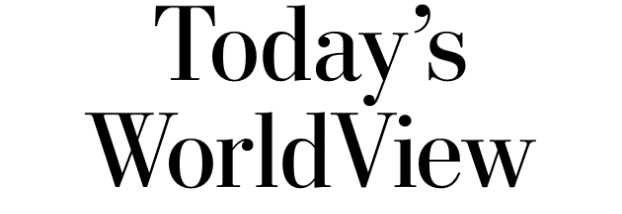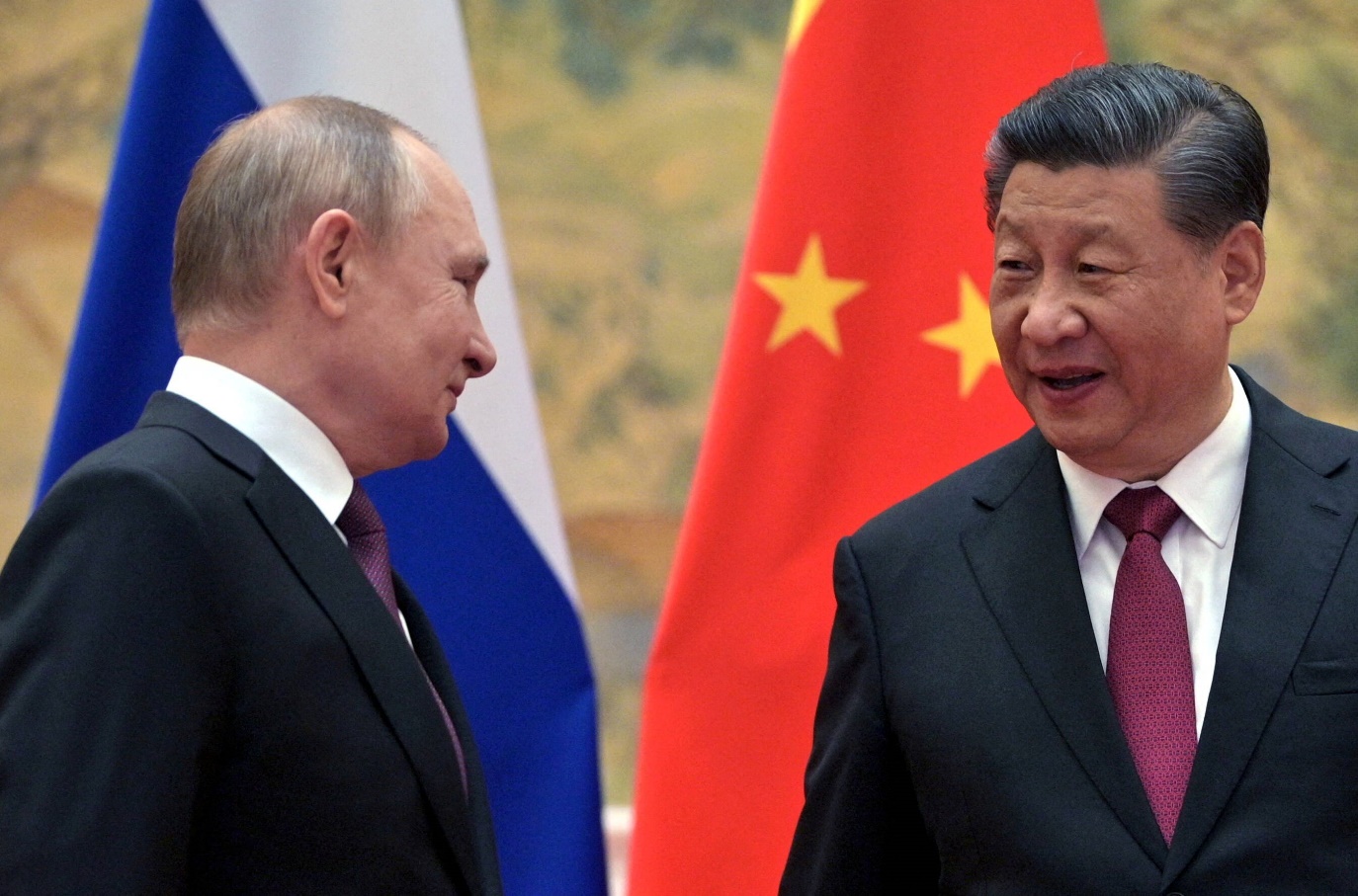Prof. ST Hsieh
Director, US-China Energy Industry Forum
626-376-7460
February 15, 2022
The following articles discuss China’s role in the middle of US-Russia conflicts. It should be stressed that the US exploited the China-Russia conflict in the 1970’s and it served as the basis of Nixon-Kissinger normalizing US relationship with China. The cliché is that there is no permanent friend or foe in global politics. It should not be a surprise for the US that China and Russia are re-new their friendship. Biden’s foreign policy is focused on re-building US global leadership lost during the Trump administration. Biden also emphasized rebuilding an international club with like minded democracy against China and Russia. Under this scenario, should anyone be surprised that Russia and China are improving their cooperation? After all, there is no way that Russia and China stay divided and wait for to be conquered by the US!
Now Putin is testing Biden and nobody else. The political stake is very high for Putin and Biden, but not Xi. Biden is disadvantaged because he is the only one among the three leaders facing a mid-term election and time is short for Biden. Even though, Biden has vowed to compete again in 2024, it may not happen for many reasons. But both Putin and Xi will still be in charge by 2024 or beyond. So, Putin and Xi have a much longer horizon than Biden. Time will tell, Biden is likely to be a lamb duck after November 8, 2022 or even before.
It is also clear that China and Russia will move toward a stronger “partnership” in the face of continued US hardline policy advocates against Russia-China “alliance of autocracies,” an “axis of authoritarianism” and an “axis for tyranny.” The challenge of such hardline approach is the possibility of a new cold war eliminating normal diplomatic contacts between the two major camps. It is not only a retreat from globalization but also moving into the dangerous stage of global decupling.
The observation that “Russian elites might say they are close to China, but they mostly send their children to the U.S. or Europe. Chinese elites also send their kids to Western education systems, not to Russia” is acute. People-to-people contacts are the best for enhancing culture exchanges and building a friendly global framework avoiding culture wars. Unfortunately, the current trend is not encouraging. In the US, FBI’s China-Initiative program is absolutely diminishing the interest of Chinese scholars and students for entering the USA. Further, it should be emphasized that east and west must learn and engage each other.
Another observation is also crucial “A shortage of people in the U.S. who specialize in both Russia and China has led to a consistent lack of public discussion of the growing bilateral relationship.” The US should invest in human resources for better understanding Russia and China. Close-door or demonizing competitors is a recipe for self-inflicted demise. However, the root cause of this problem is a long-standing US domestic challenge on race and equality. Recently, the US senate refused to confirm the appointment of a renowned Russian expert for a federal government position. Another Biden’s nominee was also forced to withdraw her appointment simply because she earned a MS degree from an institute in Moscow.
The good question “How far is China willing to go to help Russia?” begs an answer that only President Xi could respond. Whatever US pundits predict is irrelevant. First of all, Putin is the sole decider for the future of Ukraine, the US has acknowledged that already. Putin will take into consideration of China’s position but not necessary any “help”.
Axios China
By Bethany Allen-Ebrahimian ·Feb 15, 2022
1 big thing: Washington wakes up to Beijing-Moscow alignment
The Ukraine crisis is forcing Washington to grapple with Russia’s increasingly close relationship with China.
The big picture: Russia and China aren’t full-fledged allies, experts say, but they have been coordinating their economic and security interests with greater clarity over the past several years.
- The two countries have smoothly navigated their competing interests in their shared backyard of Central Asia — and the Chinese government has aligned itself with Russia on Ukraine.
- “I don’t see them as joining forces, but I see them as presenting parallel challenges to the West,” said Maria Repnikova, assistant professor in global communication at Georgia State University.
Driving the news: Chinese President Xi Jinping said earlier this month in a joint statement issued with Russian President Vladimir Putin that China “opposed the further expansion of NATO” — demonstrating support for Russia’s demand that Ukraine not be admitted to the mutual defense pact.
- Xi’s support for Putin amid the Ukraine crisis has led a growing number of observers in Washington to warn of a Russia-China “alliance of autocracies,” an “axis of authoritarianism” and an “axis for tyranny.”
Reality check: Such concern is simultaneously belated and somewhat overblown, experts say.
- “The general trend line was there” even before Xi formally echoed Putin’s rhetoric about NATO, Alexander Gabuev of the Carnegie Moscow Center told Axios.
- But the ties between Moscow and Beijing don’t rise to the level of a true alliance, and they’re more accurately described as “transactional” and a “marriage of convenience,” Gabuev said.
- “Russian elites might say they are close to China, but they mostly send their children to the U.S. or Europe. Chinese elites also send their kids to Western education systems, not to Russia,” Repnikova said.
The backstory: A shortage of people in the U.S. who specialize in both Russia and China has led to a consistent lack of public discussion of the growing bilateral relationship.
- In think tanks, academia and journalism, regional specialists have tended to be siloed away from each other. That’s especially true for those specializing in Russia and China, countries long viewed in the U.S. as fairly niche interests that require a major time investment to learn the language.
- Even as late as 2015, senior U.S. officials still dismissed the importance of the China-Russia relationship, Gabuev said. That kind of blind spot is “partly rooted in the separation of the Russia watching and China watching system” in the U.S.
Zoom in: The U.S. system also amplifies similar divisions in the Chinese and Russian systems.
- Chinese state employees who focus on the U.S. tend to know little about Russia, and when their China-focused U.S. counterparts ask about China’s relationship with Russia, the Chinese staff are often dismissive of Russia or know little about it — thus giving the American side the faulty impression that Beijing doesn’t take Moscow seriously.
- The Russian system also tends to have separate tracks for those who focus on Europe and the U.S., and those who focus on China, Gabuev said, and that results in a similar lack of nuanced information when Russia-focused U.S. staff ask their Russian counterparts about China.
What to watch: The Biden administration believes Beijing is gauging the U.S. response to Russian threats to Ukraine as a proxy for how America would deal with more Chinese aggression toward Taiwan.
On China’s role in the Ukraine crisis: The close relationship between Moscow and Beijing means that Putin doesn’t have to worry about what Xi might do when he isn’t looking, Doran said.
- “Putin’s buildup around Ukraine includes taking all of his best units from Asia and bringing them to Europe. And he can do that because he doesn’t have to fear an attack on his eastern border.”


How far is China willing to go to help Russia?

The display of China-Russia friendship in Beijing was warm enough to melt a Siberian glacier. Ahead of the Opening Ceremonies of the Winter Olympics — an event boycotted by President Biden and nearly two dozen other heads of state — Russian President Vladimir Putin briskly traversed a red carpet to grip the extended arm of Chinese leader Xi Jinping. Gushing ensued during their face-to-face meeting. Putin spoke of an “unprecedented” closeness between the two powers. Their 5,300-word joint statement released the same day amounted to a treatise on the dangers of American preeminence, arguing for a rethink of everything from Washington’s definition of “democracy” to governance of the Internet.
The joint statement did not mention Ukraine by name. But with Russian troops poised on that nation’s border, and the United States warning of an attack at any moment, the timing of the lovefest this month wasn’t lost. It came as the West is threatening crippling sanctions on Moscow should its forces act. Putin, as the New York Times pointed out, has been stockpiling currency reserves, slashing its budget and reorienting away from U.S. and European imports to prepare for Western punishment. But even Russia needs friends.
China is Putin’s best bet. In the shadow of the escalating Ukraine crisis, the two nations have appeared to forge tighter bonds built on shared strategic interests — and enemies. The joint statement this month suggested a road map for an authoritarian axis that serves as a stronger counterweight to the democratic West, even as they sought to twist the definition of democracy itself.
“The Beijing manifesto,” as The Post’s David Ignatius dubs it, sought to present a new vision of a multipolar world bent on the “redistribution of power.”
“The two leaders even tried to appropriate the United States’ signature theme of democracy, arguing that it was ‘a universal human value, rather than a privilege of a limited number of States.’ Meaning: Democracy is anything we say it is,” Ignatius writes.
U.S. officials have long fretted over the prospect of a strong Sino-Russian partnership, with Henry Kissinger’s historic trip to China in 1971 laying the groundwork for an opening with Beijing and driving a wedge between it and Moscow. Thus, a Xi-Putin bromance is the stuff of U.S. nightmares.
But how much of the repackaged partnership is just talk, and how far is China truly willing to go to help Russia?
At an Atlantic Council forum last week, former U.S. national security adviser Stephen Hadley argued that China — which recognizes the Ukrainian government and has developed trade ties with it — “will not formally endorse” an invasion, but would nevertheless “blame the United States and blame the West for provoking it and for failing to take into account Russia’s legitimate security interests.”
Beijing has denied reports suggesting Xi may have asked Putin not to invade Ukraine during the Olympics so as not to steal Chinese thunder. “The Chinese side advocates resolving differences by means of dialogue and consultations,” the Chinese diplomatic mission in Moscow said in denying the reports, according to Russia’s state news agency Tass.
There’s some reason to believe in limits to the Chinese-Russian partnership, especially in the event of serious Western sanctions with knock-on effects for any Chinese companies that violate them. The Chinese show little distaste for authoritarian behavior — doing easy business with nasty regimes. But in general, China dislikes foreign invention, prioritizes economic interests and tends to hedge its bets.
Heavily censored Chinese media as well as government statements have “tended to accept Russia’s framing” of the Ukraine issue, write defense analyst Daniel Shats and security author Peter W. Singer in Defense One. The People’s Liberation Army Daily, among other state media, has run articles that present the United States and NATO as “provocateurs” in a “hybrid war” against Russia, painting Ukraine as their pawn.
“But so far, this rhetoric has not translated into substantive support for Russia’s actions,” they write. “Official statements from the Chinese government have repeatedly emphasized neutrality and a posture of non-intervention, the same stance it took in the 2014 Crimea crisis.”
That stance in 2014 prioritized Chinese access to Western markets.
“China criticized American and European sanctions imposed on Russian officials, banks and companies after 2014,” the Economist noted last month. “But by and large Chinese banks and companies did not try to bust them, putting access to Western markets and financial systems first.”
Still, the current standoff between Russia and the West — as suggested by that opus of a joint statement — may be fundamentally different. Warming Sino-Russian ties have allowed Moscow to redeploy troops from the Chinese border closer to Ukraine in Belarus, according to Bonnie Glaser, the German Marshall Fund’s Asia program director. She suggests in Foreign Policy that this time, Beijing — locked in its own strategic stare down with Washington over a host of issues including the fate of Taiwan — may be willing to incur costs to break any attempt by the West to isolate Russia, including financially.
“In a wider strategic context where Beijing sees itself in an intensifying rivalry with the United States, consolidating a partnership with Russia is now worth the price of some unhappy European leaders and modest potential economic costs in Ukraine,” Glaser wrote.
Bloomberg News, citing three senior officials, reported last week that the Biden administration increasingly believes China is viewing the U.S. response to Ukraine as a test case for how it might react to Chinese aggression in Taiwan. China’s belligerence there is indeed growing. Last month, Taiwan — which China views as its own territory — scrambled fighters to warn away 39 incursions by the Chinese air force within one day, the largest number since October.
“It will help Xi decide whether and how he should go about military and forceful reunification with Taiwan,” writes Gunjan Singh, a professor at India’s O.P. Jindal Global University.
Chinese academics dispute that characterization — in part because it’s not unusual for them to “grumble when foreigners doubt that China is anything but a peace-loving giant,” the Economist notes. It would surely watch the West’s reaction to Russian aggression in Ukraine closely. But Chinese experts say Beijing understands that a showdown over Taiwan would be far graver.
